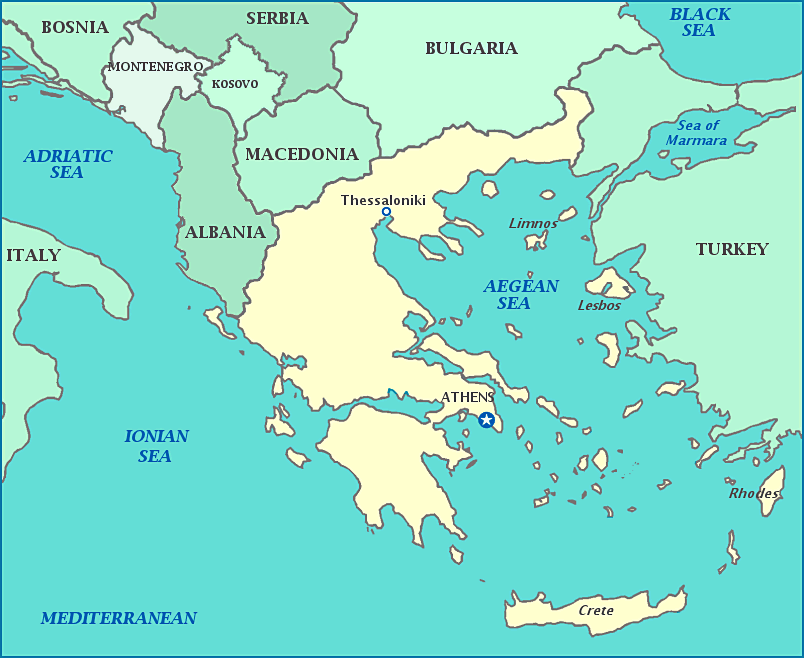Biodiversity & Environment
Aegean Sea Litter
- 23 Apr 2019
- 4 min read
A team of Greek University students has successfully detected the location of litter in Aegean sea using the European union’s satellite system.
- The purpose of the experiment was to see whether the satellites will be able to detect the floating rafts of plastic in the sea.
- Such detection of marine waste will be helpful in cleaning.
Marine Pollution
- Pollution of the marine environment means the introduction by man, directly or indirectly, of unwanted substances or energy into the marine environment, including estuaries.
- Such introduction results in harm to living resources and marine life, hazards to human health, a hindrance to marine activities, including fishing and other legitimate uses of the sea.
Sources of Marine Pollution
- Land-based sources (such as agricultural run-off, discharge of nutrients and pesticides and untreated sewage including plastics) account for approximately 80% of marine pollution, globally.
- Excessive nutrients from sewage outfalls and agricultural runoff have contributed to the increasing incidence of low oxygen (hypoxic) areas known as dead zones, where most marine life cannot survive, resulting in the collapse of some ecosystems.
- There are now close to 500 dead zones with a total global surface area of over 245,000 km², roughly equivalent to that of the United Kingdom.
- The excess nitrogen may lead to the proliferation of seaweeds and microorganisms and cause algal blooms. Such blooms can be harmful, causing massive fish kills, contaminating seafood with toxins and altering ecosystems.
- Litter can accumulate in huge floating garbage patches or wash up on the coasts. Plastics float in the Ocean, releasing contaminants as they break down into toxic micro-particles that animals mistake for food.
- Fish and birds can choke on these particles, get sick as they accumulate in their stomachs, or become entangled in the larger debris.
- In 2010, the Gulf of Mexico deep-water oil spill had a devastating effect on the entire marine ecosystem, as well as the populations that depend on the marine areas for their livelihoods.
- Smaller oil spills happen every day, due to drilling incidents or leaking motors, and cause the death of birds, marine mammals, algae, fish and shellfish.
Significance of Clean Ocean
- The ocean is a vital source of nourishment, especially to people in the world’s poorest nations.
- Many depend on fish for their primary source of protein; fisheries and aquaculture support the livelihoods of about 540 million people (8% of the world’s population) directly or indirectly.
- Overfishing, loss of biodiversity and the possible extinction of species put stress on these limited resources. This could lead to famine, increased poverty and conflicts, including war.
- Learning to manage ocean sustainably is the only path to global prosperity and peace.




